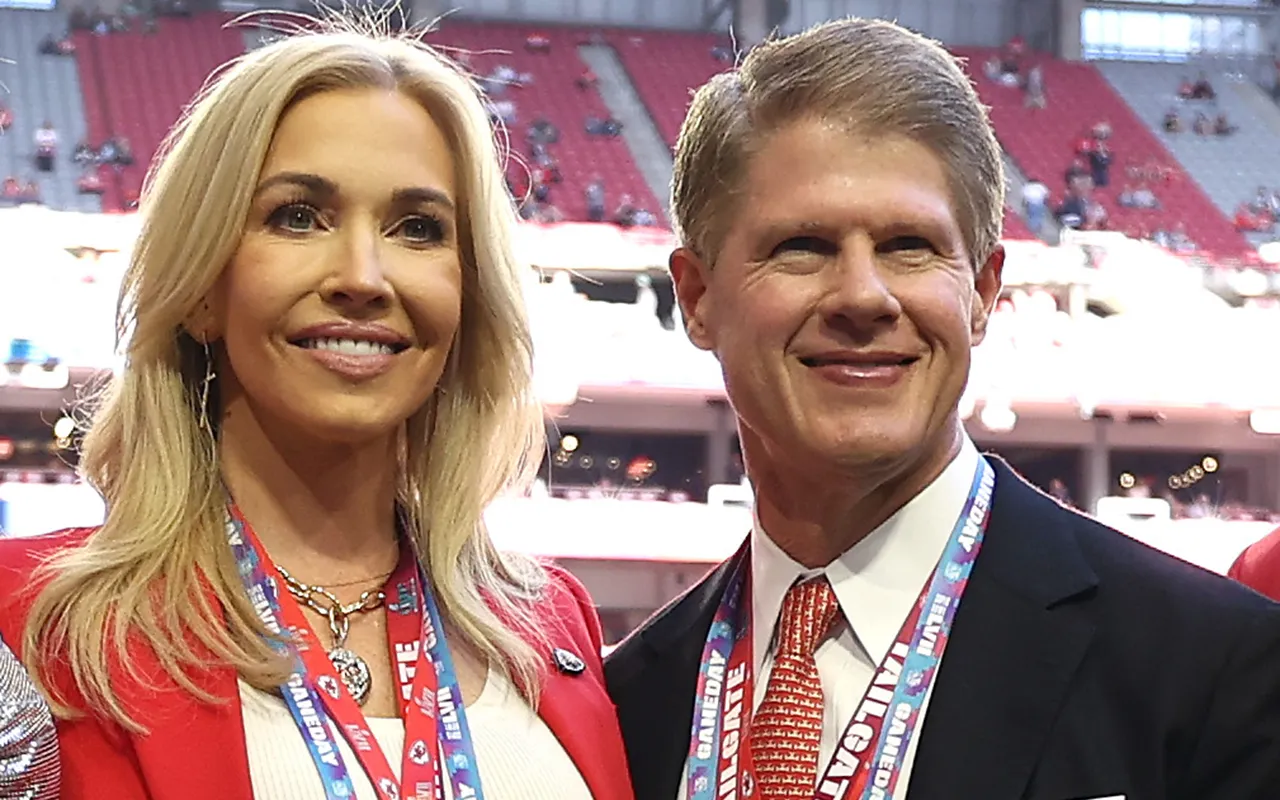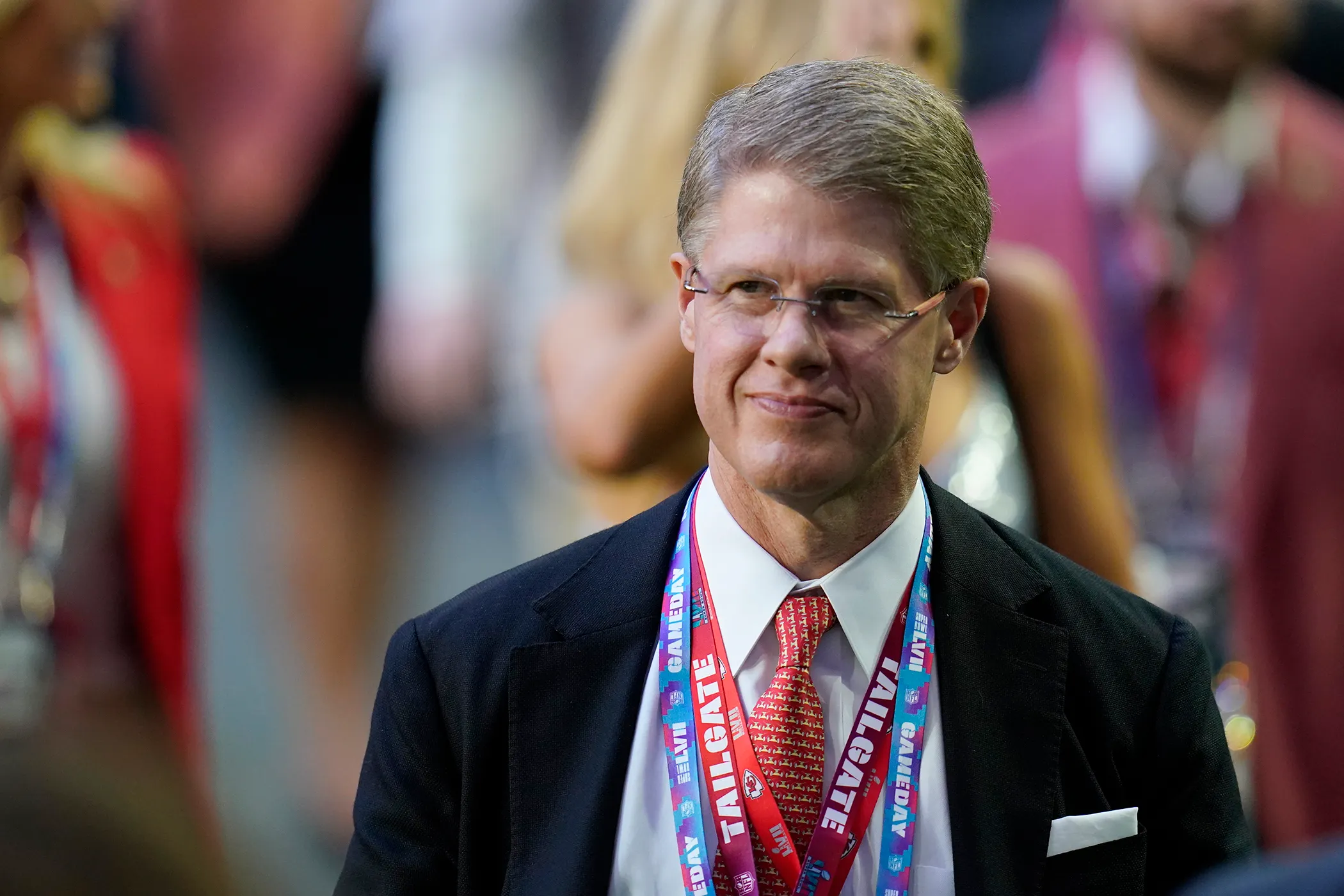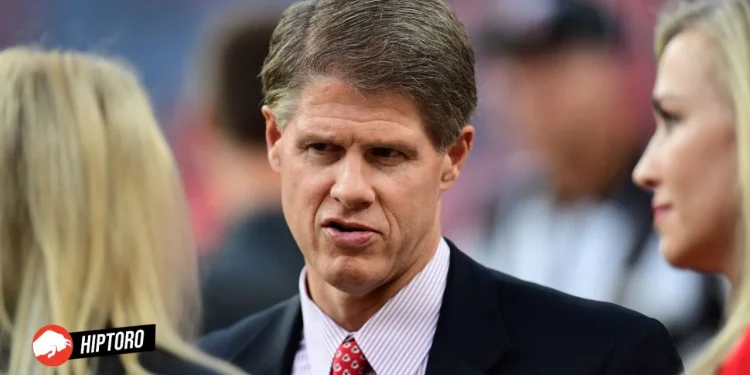The heart of Kansas City Chiefs beats strong with the pulse of its beloved Chiefs, a team that has brought not just victories but a sense of unity and pride to the local community.
However, the recent announcement by the Kansas City Chiefs’ CEO, Clark Hunt, has stirred more than just team spirit; it has ignited a debate on the city’s priorities, taxpayer contributions, and the future of the iconic Arrowhead Stadium.
At the center of this whirlwind is a staggering $500 million demand from the taxpayers to fund the stadium’s renovation, a proposal that threatens to relocate the Chiefs should the city fail to comply.

Kansas City Chiefs’ Vision for the Future: Reimagining Arrowhead Stadium
Clark Hunt, alongside his family, recently unveiled an ambitious plan to transform Arrowhead Stadium into a state-of-the-art sports complex. The proposal, crafted by the renowned Kansas City-based architectural firm Populous, includes a slew of upgrades aimed at enhancing the fan experience.
From advanced TV, Wi-Fi, and audio technology to new concession stands, retail spaces, and an expansive parking deck, the vision for the stadium is both grand and comprehensive, addressing all major concerns fans have expressed over the years.
Kansas City Chiefs logo still on playing surface from Super Bowl. Kind of cool pic.twitter.com/CeI6cksWdl
— Dean Ritchie (@BulldogRitchie) March 2, 2024
The projected renovation cost is a whopping $800 million, with the Hunt family committing to fund $300 million of the total. The remaining $500 million, however, is expected to be covered by the taxpayers, a stipulation that has raised eyebrows and questions about the fairness and feasibility of such a demand.
The Financial Crossroads for Kansas City Chiefs: Taxpayer Funding and the Threat to Relocate
The essence of the controversy lies in the Hunt family’s insistence on public funding for the majority of the renovation costs. This move has been met with skepticism and opposition, given the team’s significant increase in valuation and the Hunt family’s substantial net worth.

The demand for taxpayer contributions has opened a debate on the obligations of sports team owners and the role of public funding in private ventures.
The upcoming ballot initiative in April stands as a critical juncture for the city and its beloved Chiefs. A “yes” vote would repeal the existing Truman Sports Complex sales tax, paving the way for the proposed renovations and a new downtown stadium. Conversely, a “no” vote would maintain the current tax, leaving the future of the stadium and the team in limbo.
The Last Renovation: A Look Back and the Path Forward for Kansas City Chiefs
Arrowhead Stadium’s last major renovation in 2007 brought significant improvements, including the Chiefs Hall of Honor and a luxury suite level, yet it failed to address long-standing issues with stadium quality.
Reports by the NFLPA highlight the stadium’s deficiencies, from training and locker room facilities to overall ownership rankings. These shortcomings underscore the pressing need for renovation, not just for aesthetics but for the team and fans’ overall experience.

Despite the evident need for an upgrade, the method of funding remains a contentious issue. The Chiefs’ success and financial growth posit a question of responsibility and investment in the team’s future. The Hunt family’s legacy and contribution to the NFL are undeniable, yet the current situation demands a reevaluation of how such projects should be financed, especially when public funds are involved.
Kansas City Chiefs: Balancing Act Between Legacy and Community
The Kansas City Chiefs’ proposal for Arrowhead Stadium renovation is more than a building project; it’s a testament to the team’s ambition and its bond with the city.
However, the path to realization is fraught with financial and ethical considerations that require careful navigation. The outcome of the April ballot initiative will not only determine the fate of the stadium but also reflect the community’s values and priorities.
As Kansas City Chiefs stands at this crossroads, the decision ahead will resonate far beyond the confines of a sports stadium, touching upon the essence of community support, fiscal responsibility, and the enduring spirit of a city united by its love for the game.
The Chiefs’ legacy in Kansas City is undeniable, but the next chapter in their storied history is yet to be written, pending a decision that will shape the landscape of the city and its relationship with its most cherished team.

Source: The Sports Rush









